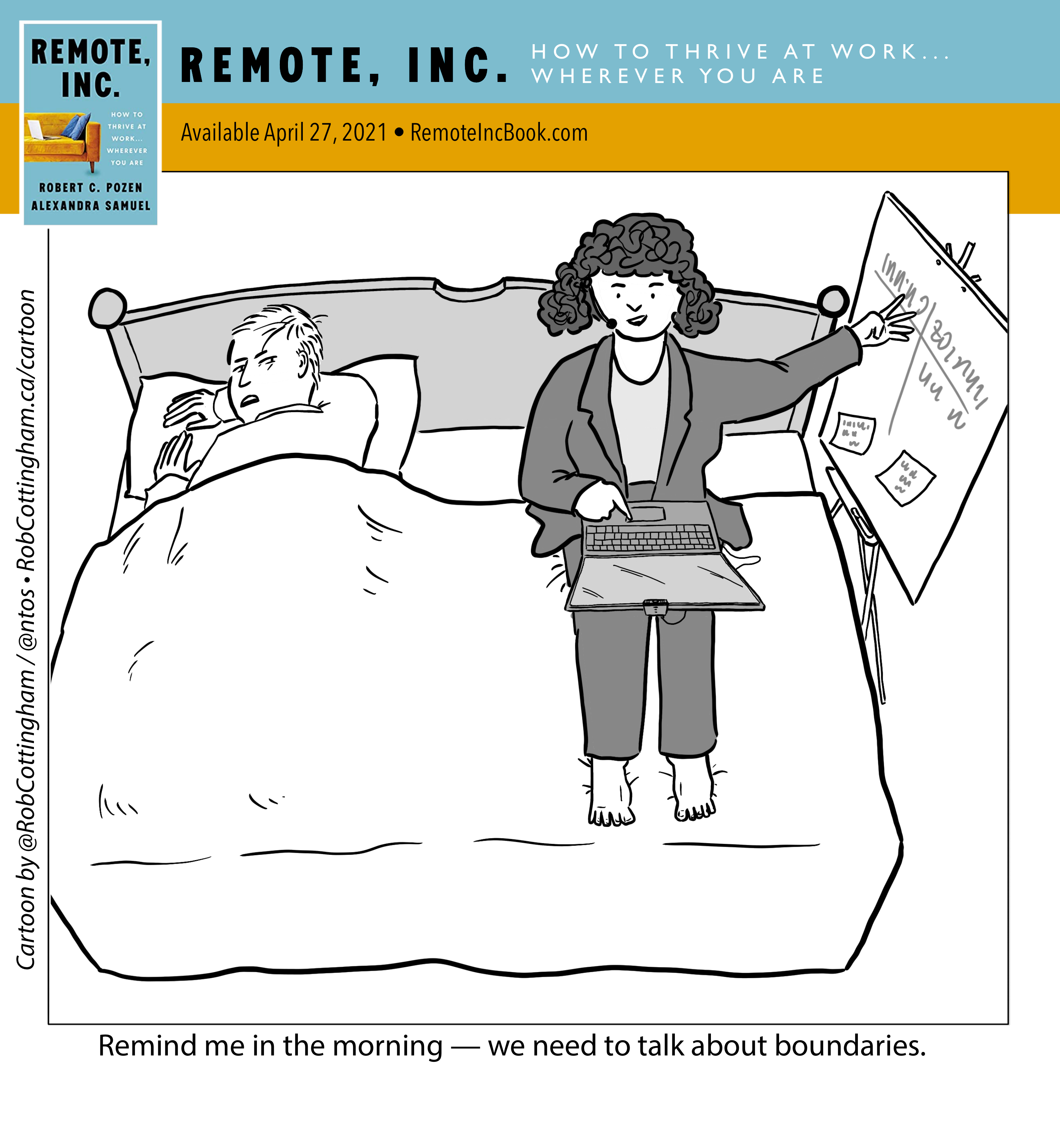As I speak with senior executives about remote work, I hear a lot of concerns about the difficulties of maintaining corporate culture. They are worried that the good aspects of their culture will be lost if employees don’t return full-time to the office.
While company culture is important, it is difficult to define precisely. Some companies pride themselves on their responsiveness to their customers. Other companies stress the importance of team work and cooperation. Still others try to promote innovation and an entrepreneurial spirit. And, of course, the culture of many companies includes several of these strands plus additional ones.
So how can companies maintain their culture when some or most of their employees are working remotely? Here are a few suggestions for those managing remote teams.
Establish company norms
First, team leaders should explicitly establish norms governing the behavior of team members. (This is one of the strategies we share for managing remote teams in chapter 3 of Remote, Inc.) In a company that emphasizes work-life balance, those norms could include not checking email and phone mail during weekends. In a company that emphasizes customer responsiveness, by contrast, team members might be expected to check messages for customer inquiries during weekends.
Weekly Team Meetings
Second, team leaders should host weekly meetings to orchestrate the efforts of team members working from home. These meetings should be structured to emphasize the key elements of company culture. For example, in a company where innovation is a highly prized, the leader should always ask for ideas on new products and give high praise to anyone who finds creative ways to resolve customer problems.
Culture Building
Third, team leaders should organize other types of activities that reinforce important elements of corporate culture. In a company where team work is a critical element, employees might have sessions with games that require close collaboration. In a company where physical fitness is highly valued, employees might have contests to see who can walk the most miles each day.
Finally, team leaders should recognize that it is much easier to get employees to adopt the company’s culture if they spend a little time in the office. When new employees are onboarded, they should be required to come to the office for a few weeks — even if they will be working mainly from home. That’s where they can meet other employees, learn the company’s norms and get a chance to ask questions.
Similarly, although teams may work mainly from home, it’s great for company culture and collegiality if they gather in the office from time to time. All team members could come to the office for the same day each week, or for a few days each month. This is especially important where teams are distributed among different parts of the country or the globe. In those situations, an all-hands meeting once or twice a year would be very helpful in maintaining a company’s culture.
If you are a team leader, you can find many practical suggestions about maintaining company culture and other aspects of managing your team by reading our book entitled Remote, Inc.



